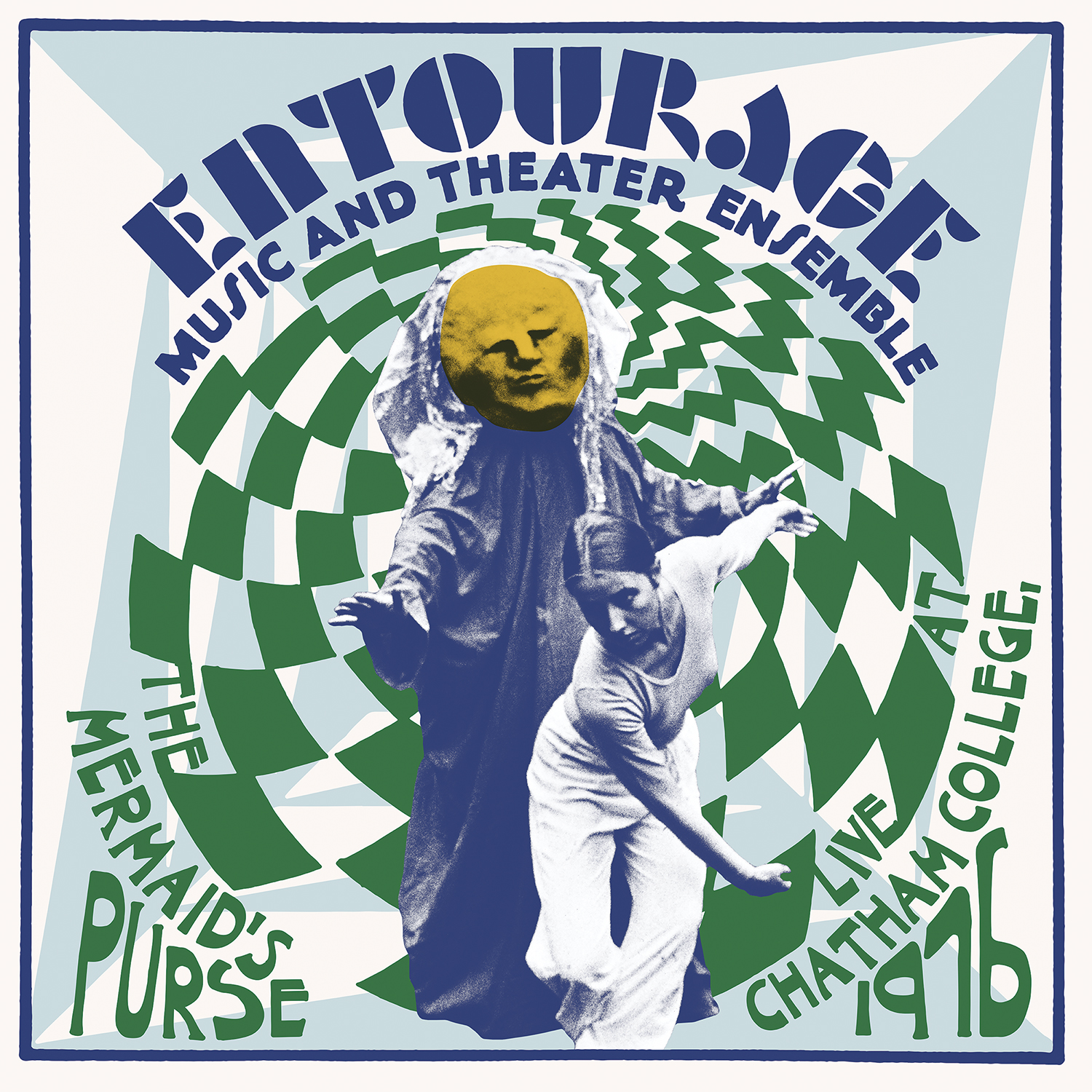-

Blog\SFW40253_Cover_1500.jpg
Entourage Achieved Creative Heights During 1976 Performance, Preserved on 'The Mermaid's Purse'
The Entourage Music and Theater Ensemble, a revered collective whose ambitious instrumental music for modern dance and theater performances has made them a beloved cult artist for decades, has announced the release of their live album The Mermaid’s Purse: Live at Chatham College, 1976, is out on March 4th, 2022 and available for pre-order now. Recorded for broadcast from the Pittsburgh college and produced by sole surviving group member Wall Matthews, it’s the only known live recording that features selections from the group’s most well-known album, The Neptune Collection, which was released by Folkways in 1976 and reissued on vinyl in 2020.
In the summer of 1974, The Neptune Collection came to life in the whaling town of New London, Connecticut. The group ate scrambled egg sandwiches, played poker, drank at a dive bar called The Dolphin, and wrote music, rehearsing and improvising together in member Joe Clark’s apartment. As they played, the music began to weave itself into being. “Something larger was molded,” Matthews says in The Mermaid’s Purse’s liner notes. “Something very earthy and very spiritual at the same time.” It took two days to record, and only a couple more to bring The Neptune Collection out on the road. By the time they got to Pittsburgh two years later, the quartet—Rusty Clark and Don Fitch, in addition to Joe Clark and Matthews—had their work dialed in. “Our purpose is to create original works in a collective manner,” the group wrote in The Neptune Collection’s liner notes. “We utilize music, dance, poetry, and drama.” While technically true, the reality of the music Entourage brought to the Chatham stage falls somewhere between the academically dry language of their mission statement and the endearingly lackadaisical environment that gave the music its birth. These are searching, curious pieces of music that wear their ambition lightly, taking in elements of modernist classical music, folk traditions from around the world, drone, jazz. The songs don’t go where they should; they go where they might. There are shades of their contemporaries in Popol Vuh here, a touch of Terry Riley’s rustic mysticism. Snatches of birdsong give way to drones and stretches of dissonance. Rusty Clark plays his viola with narrative insistence; Matthews shifts from gentle accompanist to the lyricism of Bert Jansch to an obolid phrasing that makes him sound like Arto Lindsay playing Grant Green.
The Mermaid’s Purse highlights the sense of play the group developed in New London. Each member seems to seek the edges of the sounds they make, looking for anything soft, loose, and adaptable to connect with their partners. The setting serves as a reminder of their incredible precision and feel for the material; while it may be strange to think of such diffuse music as being tightly performed, the interplay here shows how keyed the members of Entourage were to one another. With its remarkable spaciousness and individual detail, listening to The Mermaid’s Purse can feel like watching lace generate itself in real time.
Crawdaddy called The Neptune Collection “awesomely imagistic,” hailing its “maelstrom of impressions,” while The Quietus declared the 2020 reissue to be “[haunted] by an overwhelming sense of existing at the end of a summer that was never supposed to end.” On The Mermaid’s Purse, that haunted feeling is replaced by a sense of presence, an abiding faithfulness to the music being made in the moment. It is nothing less than the sound of four brilliant musicians seeking the warmth of the summer sun in one another.
Entourage Achieved Creative Heights During 1976 Performance, Preserved on 'The Mermaid's Purse' | Smithsonian Folkways Recordings

